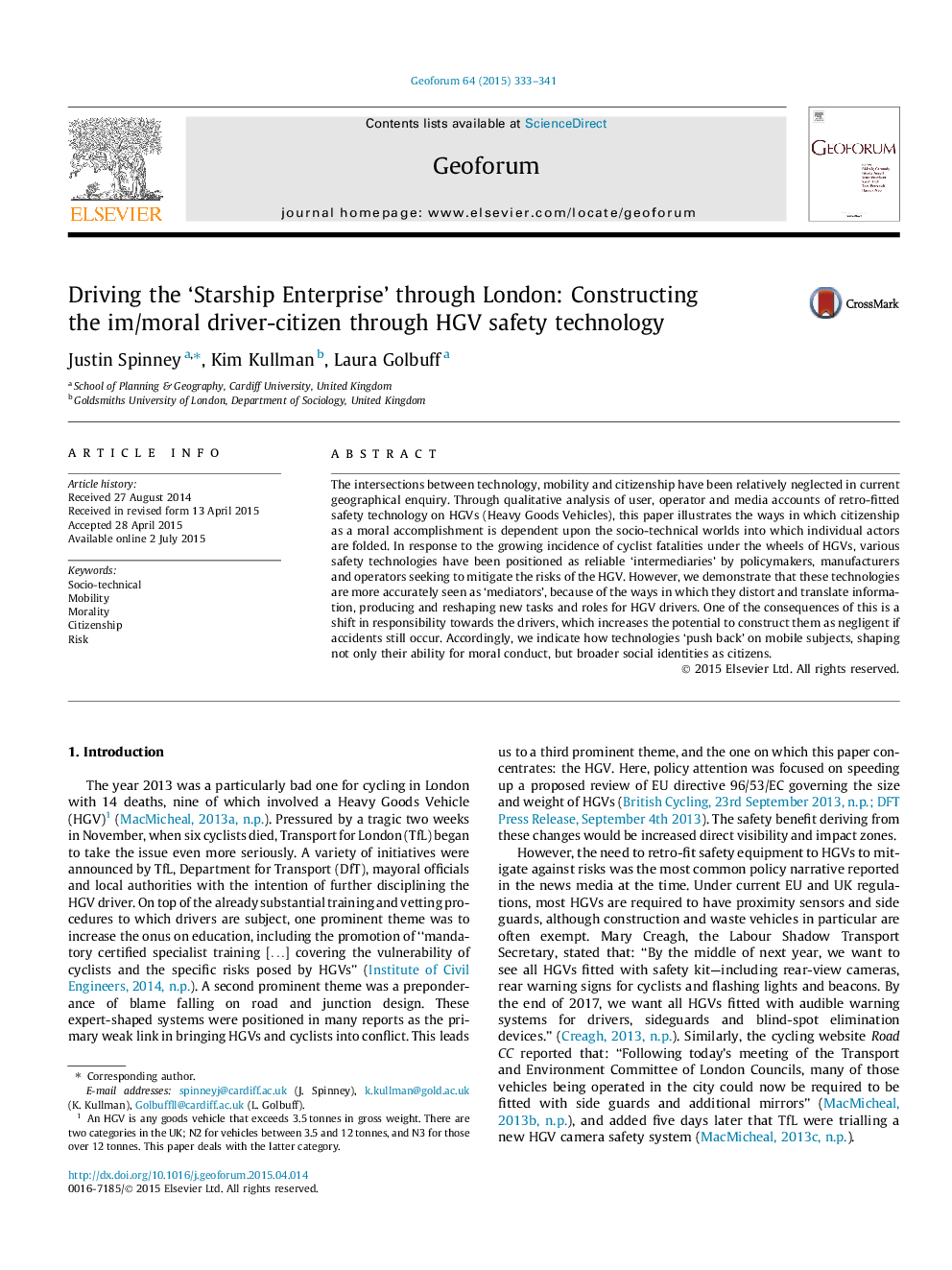| Article ID | Journal | Published Year | Pages | File Type |
|---|---|---|---|---|
| 5073696 | Geoforum | 2015 | 9 Pages |
Abstract
The intersections between technology, mobility and citizenship have been relatively neglected in current geographical enquiry. Through qualitative analysis of user, operator and media accounts of retro-fitted safety technology on HGVs (Heavy Goods Vehicles), this paper illustrates the ways in which citizenship as a moral accomplishment is dependent upon the socio-technical worlds into which individual actors are folded. In response to the growing incidence of cyclist fatalities under the wheels of HGVs, various safety technologies have been positioned as reliable 'intermediaries' by policymakers, manufacturers and operators seeking to mitigate the risks of the HGV. However, we demonstrate that these technologies are more accurately seen as 'mediators', because of the ways in which they distort and translate information, producing and reshaping new tasks and roles for HGV drivers. One of the consequences of this is a shift in responsibility towards the drivers, which increases the potential to construct them as negligent if accidents still occur. Accordingly, we indicate how technologies 'push back' on mobile subjects, shaping not only their ability for moral conduct, but broader social identities as citizens.
Related Topics
Social Sciences and Humanities
Economics, Econometrics and Finance
Economics and Econometrics
Authors
Justin Spinney, Kim Kullman, Laura Golbuff,
